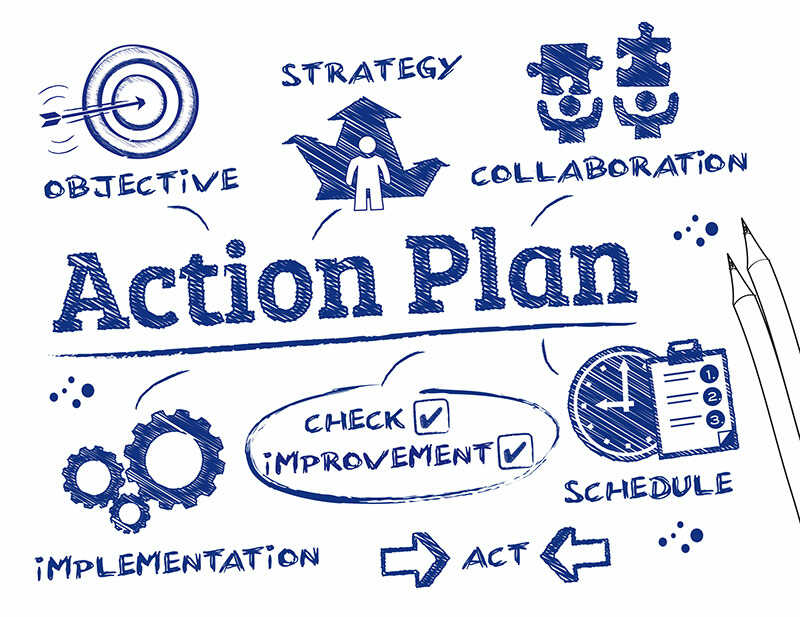If you’ve been parenting ADHD kids, odds are you are tired of feeling overwhelmed and frustrated by the chronic behavioral challenges you encounter each day.
I’m excited because, in this 9-part blog series on parenting ADHD, I will demonstrate using Collaborative Problem Solving® or CPS to help a loving couple develop a simple plan to help their 15-year-old son, who struggles with ADHD and chronic behavioral challenges.
Please join me and discover how I helped this brave couple unlock their son’s full potential—even though they began with no patience, no plan, and no clue!
David and Amber's Story
Within minutes of our initial meeting, I learned David and Amber were educators—he, a district superintendent, and she, a high school principal. More importantly, they were stressed parents at their wit’s end.
They described their 15-year-old son, Johnny, as a good kid. About 85 percent of the time, he was a rock star. He was athletic, a strong swimmer and skier, and a great surfer. However, during the other 15 percent, they described him as a “different person.”
Amber made sure I knew, “Johnny was restless, fidgety, and unable to sit still for extended periods. He’s more than energetic—his engine is always on, and his mind never stops!
David reported that Johnny was impulsive, saying, “He’s interrupted conversations, blurted out inappropriate comments to his teachers, and engaged in risky activities without considering the consequences.”
As our conversation unfolded, I was unsurprised to learn that Johnny’s actions produced a growing legacy of conflicts with family, friends, and authority figures at school.
Their Concerns
After David and Amber shared what they described as “the tip of the iceberg,” they paused and looked to me for professional feedback. Here’s the gist of what we discussed:
It’s no secret that all kids struggle with meeting adult expectations—especially kids with ADHD.
My 22 years of seeing clients in therapy and teaching psychology courses at Vanguard University give me a different lens to view and interpret Johnny’s behavior—one that’s unlike most conventional views of problem behavior.
So, I posed some thought-provoking questions,
“What if Johnny’s chronic challenging behaviors are a predictable form of communication? What if those behaviors are his best attempt at saying, ‘Please understand me… I’m struggling?’ What if, instead of using rewards and consequences to motivate him to comply, we try to collaborate, empathize with his skill struggles, and work together to find mutually agreeable solutions that work for everyone–including Johnny?”
A deafening silence filled the room as David and Amber turned to each other. Confused and hopeful, David asked, “What do you mean?”
My Thoughts
During the ensuing conversation, we discussed a key idea. When kids struggle to meet the demands placed on them at home or school, a varying degree of emotional distress typically follows, placing them in one of two categories.
- Some kids implode. Their emotional distress results in withdrawal, followed by tears, whining, sulking, or complaining.
- Other kids explode. They communicate their distress in more troubling and aggressive ways, resulting in arguing, screaming, swearing, hitting, biting, and even spitting.
In either case, the concerning behavior(s) is communicating the same thing: Johnny is having difficulty meeting the expectations placed on him, which means there is a problem to be solved.
As with all the clients I’ve met, I assured them that my job is to help them identify and solve those problems collaboratively. In other words, equip Mom and Dad to solve these problems with Johnny, not for him.
However, effectively parenting ADHD and solving these problems requires an open mind and curiosity about seeing things through a different lens. Otherwise, things will remain the same, and David and Amber will waste their time reverting to the habits that got them stuck in the first place.
A Warning
As with all the clients I’ve met, I must let them know that the lens you’re about to discover is a problem-solving model, not a behavior modification model, to stop Johnny’s unwanted behavior(s). It’s a vast departure from using rewards and consequences to motivate kiddos to comply with your expectations.
If you’re open to it, I’ll introduce you to a problem-solving model that focuses on identifying and resolving the underlying problems that lead to Johnny’s challenging behavior(s).
However, I won’t help you learn how to reward good behaviors and punish unwanted ones.
The reason? I’m not a fan of solving the wrong problem. If you remain curious during our time, you’ll discover that your son’s alleged misbehavior is what I call stress-behavior, or an adaptive stress response.
Here’s my biggest concern. If we continue to focus on Johnny’s alleged misbehavior, we will do so… at the expense of the stress-induced behavior that drives it! My vote is to try a new approach.
David and Amber's Why
Given their demeanor, it was clear to me that David and Amber were tormented by intense guilt, resentment, and worry because they “tried it all.”
Boundaries. Time-outs. Rewards. Counting. Punishment. Nothing seemed to work! Like most parents, their biggest fear was laying awake at night and worrying about ruining their son—and raising Johnny to hate them in the future!
Amber said it best: “With the challenges we face as parents and educators, caring for our son with ADHD… and managing challenging behaviors that disrupt and sometimes destroy our family harmony… is vital to our family’s success—far too vital to be left to chance! We need help and support because… (starts tearing up) if we don’t, we’ll continue to,”
- Walk on eggshells and worry about the next meltdown.
- Feel sick of repeating ourselves and tired of yelling.
- Feel like we’re the only parents who struggle to raise a challenging kiddo.
David expressed a similar sentiment: “We’re deep-fried and done. It’s time to get the help and support we need because… if we don’t, we’ll continue to,”
- Feel alone and crazy inside.
- Have zero work-life balance.
- Struggle with self-doubt and resentment towards our son.
- Feel fearful about his future and the condition of our marriage.
A Guide With a Plan for Parenting ADHD Kids

I assured David and Amber that there is a proven way to help break this cycle. They shouldn’t have to waste their time learning the habits that got them stuck when there’s already a proven plan that works!
So, I posed another thought-provoking question.
“What if I could help you discover the hidden forces behind why Johnny can be so challenging? What if I could also help you predict when it happens and how to help him?”
As our conversation continued, I let this brave couple know that if they’re willing, I’ll take them on a guided tour with three steps:
- Why: Get a thorough understanding of Johnny’s behavioral challenges.
- What: Identify Johnny’s unsolved problems.
- How: Start solving those problems collaboratively… before they erupt.
The Concerns of Parents of Kids With ADHD
In response, David and Amber turned to each other, smiled at me, and said, “We’re in!” So, I asked them to share what compelled them to contact me in the first place. Here’s a summary of their concerns:
ADHD and Problems At School
David and Amber shared stories that aligned with what I refer to as the “3-D’s” of challenging behavior.
Johnny was disruptive, defiant, or disengaged at home or school most days.
He was known for breaking the rules, and his high school administrators reported countless power struggles. And that was just part of their story!
Since David and Amber spent the last 16 years in education—he as district superintendent and she as high school principal—Johnny’s challenging behavior was far more than difficult—it was also embarrassing!
ADHD and Problems At Home
David and Amber reported that as puberty set in, Johnny had become verbally aggressive with them, resorting to harsh language, insults, and threats toward authority figures.
They contacted me because “Things have grown much worse lately.” Johnny was hitting, kicking, cursing, and throwing objects at his parents and siblings!
ADHD Impacts Relationships
In a moment of vulnerability, David and Amber described feeling intimidated—even scared—of their beloved son.
I learned that Johnny’s challenging behaviors required constant attention and were exhausting because they interfered with “being there” for their other children.
Unsurprisingly, Johnny’s actions have taken a massive toll on their marriage.
Although David and Amber frequently argued over the best ways to handle Johnny’s chronic, challenging episodes, they agreed on the increasing level of stress it placed on their marriage.
ADHD Requires Clinical Attention
During our session, I learned that David and Amber had sought several professionals, most of whom urged them to set firmer limits, add more structure, be more consistent, and “show him who’s the boss.”
Toward the end of our session, Amber shared a heartfelt moment Johnny initiated: “Mom, I’m sorry for being difficult. Why can’t I be normal—like all the other kids?”
Soon after, David softened and spoke to me in a troubled yet compassionate voice, “He tries so hard, but his behavior hasn’t changed much—even with all of the firmer limits, countless rewards and consequences, and different medications.”
And with that, David reached for Amber’s hand, dropped his head, and shared, “His outbursts are more intense and frequent than ever. Something needs to change—and that’s why we’re here!”
Thankfully, There Is a Better Way for Parenting ADHD Kids!
Like most of the parents I’ve met in my ADHD Counseling office, David and Amber’s problem stems from the training they received from well-meaning experts who relied on behavior modification methods that research has now shown to be largely ineffective and counterproductive—especially for kiddos with ADHD or chronic behavioral challenges!
You’re about to discover how I helped this brave couple transform life in their living room by giving them a proven plan for parenting kids with ADHD and chronically challenging behavior—even when they began with no patience, no plan, or no clue!
I will introduce David and Amber to the Collaborative Problem Solving® approach.
This strength-based, neurobiologically grounded model emphasizes that kids with behavioral challenges are tragically misunderstood.
CPS asserts that kids with challenging behavior are not driven by poor choices to get attention or defiance to avoid schoolwork or chores.
In other words, challenging kiddos don’t lack the willpower or commitment to behave well. They lack the ability or cognitive skills to behave well—skills like flexibility, frustration tolerance, and understanding of how their behavior impacts others.
A Different Lens
The CPS model is a dramatic departure from conventional approaches. It helps parents, caregivers, and educators shift their learning relationships from using rewards and consequences to building the cognitive skills kiddos need to thrive!
By the end of 9-part blog series on Parenting ADHD Kids, you will discover how to:
- Reduce challenging behavior with more confidence and less effort.
- Increase learning outcomes without stress, punishment, or rewards.
- Reduce power struggles.
- Reduce stress by solving problems with kiddos rather than for them.
- Renew hope with an approach that’s simple and effective!
- Restore your energy, peace, and joy.
ADHD Counseling in Tustin, CA
If you can relate to David and Amber, you know that managing chronic, challenging behavior shouldn’t be so hard. Discover how to transform life in your living room (or classroom) with ADHD or ADD counseling in Tustin, Ca. I would love to be your guide!







